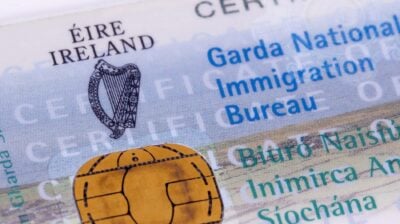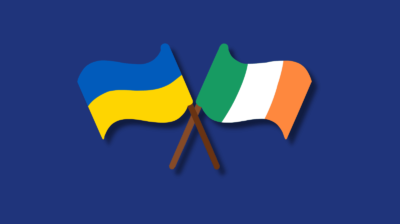International Protection applications for young people in Ireland
Learn more about what happens if an International Protection application is refused or granted


This factsheet is an extract from the publication Know Your Rights: The Rights of Children and Young People published by the Children’s Rights Alliance. It is reproduced here with their kind permission. Know Your Rights is a public information project designed to inform everyone, in plain language, of the rights and entitlements children have in Ireland and where to go when they are not respected.
International Protection means the protection given by a government to someone who has left another country to escape being harmed. If you or your family apply for International Protection in Ireland the application can either be refused or granted.
What will happen if my application for International Protection is refused?
If your application for International Protection is refused, you, or your parents on your behalf, may appeal a refusal of refugee status or subsidiary protection to the International Protection Appeals Tribunal.
When you are sent the decision on your International Protection application, you will be given a copy of the appeal form that you need to complete. If your family does not have a legal representative you can contact the Legal Aid Board.
Can I apply for any other permission if my application for International Protection is refused?
If you are not eligible for refugee status or subsidiary protection the Minister for Justice and Equality will consider if there are any reasons why you should be given permission to stay in the State (‘leave to remain’).
Can I appeal if I am refused leave to remain?
If your application for leave to remain is refused, you cannot appeal and a deportation order will be made against you. This will require you to leave the State, and if you do not, the State may try to remove or deport you. If you or your parents or guardian are advised that a legal mistake was made in coming to this decision, you may still ask the High Court to prevent this from happening, and to have them examine the decision again.
What happens if my International Protection application is granted?
If you or your family’s application for International Protection is successful, you will be granted refugee status or subsidiary protection status. This means you can stay in Ireland and you have more rights. The two forms of status have almost the same rights but there are a few small differences.
What are my rights as a refugee?
As a refugee, you will have the same rights in Ireland as an Irish citizen.
This means you have a right to:
- look for work
- get a job
- access education
- get training
- receive medical care
- social protections and services
Can I leave Ireland as a refugee?
As a refugee, you are entitled to be issued with an Irish travel document, to leave Ireland and to re-enter the country. However, you could lose your refugee status if you returned to the country from which you have fled, and you may need visas to enter other countries. You can apply for citizenship through naturalisation after three years. Time you spent waiting for a decision is not counted towards this time.
What are my rights if I have subsidiary protection status?
If you or your family’s application for subsidiary protection is successful, you will have the same rights and entitlements as a refugee but there are some small differences. In particular, it may be more difficult for you to obtain a travel document and you will have to wait five years rather than three before you can apply for citizenship.
If I have International Protection can my family outside Ireland join me here?
This depends on why you are living in Ireland and whether or not you have any rights under Irish or EU law. If you are an Irish citizen or an EU citizen, your family members may have a right to live with you in Ireland.
You have some rights if you are under 18 years and have been granted International Protection. International Protection in these circumstances, means you can apply for what is known as Family Reunification – permission for your family members to join you in Ireland. Family members in this context means, your parents, and brothers and sisters who are under the age of 18.
You have 12 months to apply for Family Reunification. This time starts when you receive your letter confirming that you have International Protection. If you are a resettled refugee, you have 12 months from your date of arrival in Ireland to apply for Family Reunification.
Need more information, advice or guidance?
We offer information, advice and guidance about the issues that matter to you. Our online Youth Information Chat service is for 16 to 25 year olds and is available Monday to Friday, 4pm to 8pm (excluding Bank Holidays).






